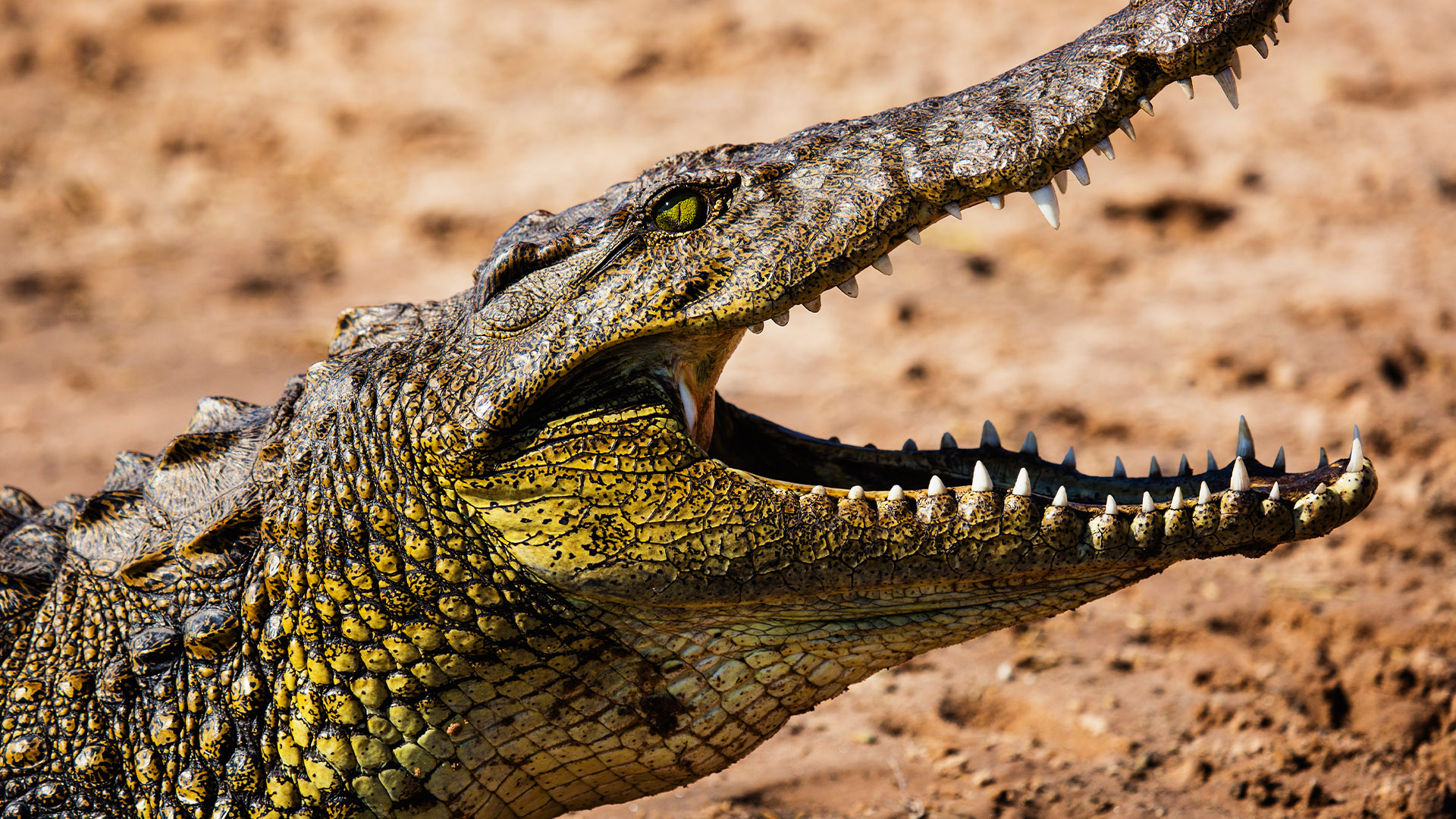Crocodiles are drawn to the wails of crying human babies and infant primates
Nile crocodiles seemed to respond more strongly to intense crying from human and ape infants, compared to calmer, quiet cries.

Nile crocodiles respond to the sound of human babies crying, as well as the cries of infant chimpanzees and bonobos, a new study finds.
What's more, the crocodiles seemed to be most responsive to higher-intensity cries — and may even be better at picking up on the level of distress in those cries than humans are.
It's unclear from the study whether this behavior was motivated by the crocodiles trying to hunt vulnerable prey or for some other reason, like confusing these infants' cries with the cries of juvenile crocodiles, for example, which can sound like squeaking or cooing. But these results give researchers more insight into how these reptilian giants perceive the world.
Researchers played cries from human, chimpanzee and bonobo infants to a group of Nile crocodiles (Crocodylus niloticus) at a zoo, recording how many of the crocodiles turned their heads or moved toward the speaker in response to the sounds. They published their results Aug. 8 in the journal Proceedings of the Royal Society B.
The crocodiles responded to cries from human, bonobo and chimp infants. But not all crying sounded the same.
Related: How are alligators and crocodiles different?
The researchers used sound recordings of human babies from two contexts: during bathtime at home with their parents, which resulted in a low-intensity crying, and vaccination at the doctor's office, which resulted in higher-intensity crying.
Sign up for the Live Science daily newsletter now
Get the world’s most fascinating discoveries delivered straight to your inbox.
Some of the more intense baby cries caused a much higher percentage of the crocodiles to respond. To see if there were specific qualities of those sounds that made the crocodiles perk up, the researchers also analyzed some of the acoustic properties of the cries they tested.
They found that the crocs were more responsive to crying sounds with more energy in higher sound frequencies, as well as crying sounds with some irregularities in the sound wave patterns, both of which are associated with higher levels of distress, the authors noted.
Think about a crying baby who’s really upset — the sound of that crying is irregular and all over the place as the baby is screaming and losing their breath, Miriam Boucher, a doctoral candidate at Clemson University who was not involved in the new research, told Live Science.
Humans tend to rank higher-pitched calls as more distressed, but that doesn't always lead to an accurate assessment, the study authors noted. For example, because bonobo cries are generally higher-pitched than those of humans, people tend to overestimate how distressed the bonobo cries are, the authors said. Crocodiles, on the other hand, did not seem to respond all that differently to cries of different pitches.
"Crocodiles thus seem particularly adapted at estimating the degree of distress encoded in an infant's cry regardless of the hominid species considered," the authors noted.
It's possible that these animals picked up on distress as a cue to spot a potential meal nearby, and the researchers noted that some of the crocodiles responded to the calls by swimming underwater, which could be a predatory maneuver. Swimming underwater could also just mean that the animals were being cautious as they investigated the sound, Boucher said.
And the crocodiles could also have been responding to these cries for some reason other than predation. The study didn't compare the crocodiles' response to these cries to another kind of sound, such as the distress cry of a juvenile crocodile or a neutral sound. Kent Vliet, a retired biologist formerly at the University of Florida who was not involved in the new research, told Live Science that he’s seen crocodilians (a group of animals that includes crocodiles, alligators and caimans) respond intensely to juvenile distress calls, even when they were coming from other crocodilian species.
In addition, these animals might simply have been curious about a new sound nearby.
"What I've seen in my own work," Boucher said, "is crocodilians can be pretty curious about things in general."

Ethan Freedman is a science and nature journalist based in New York City, reporting on climate, ecology, the future and the built environment. He went to Tufts University, where he majored in biology and environmental studies, and has a master's degree in science journalism from New York University.










